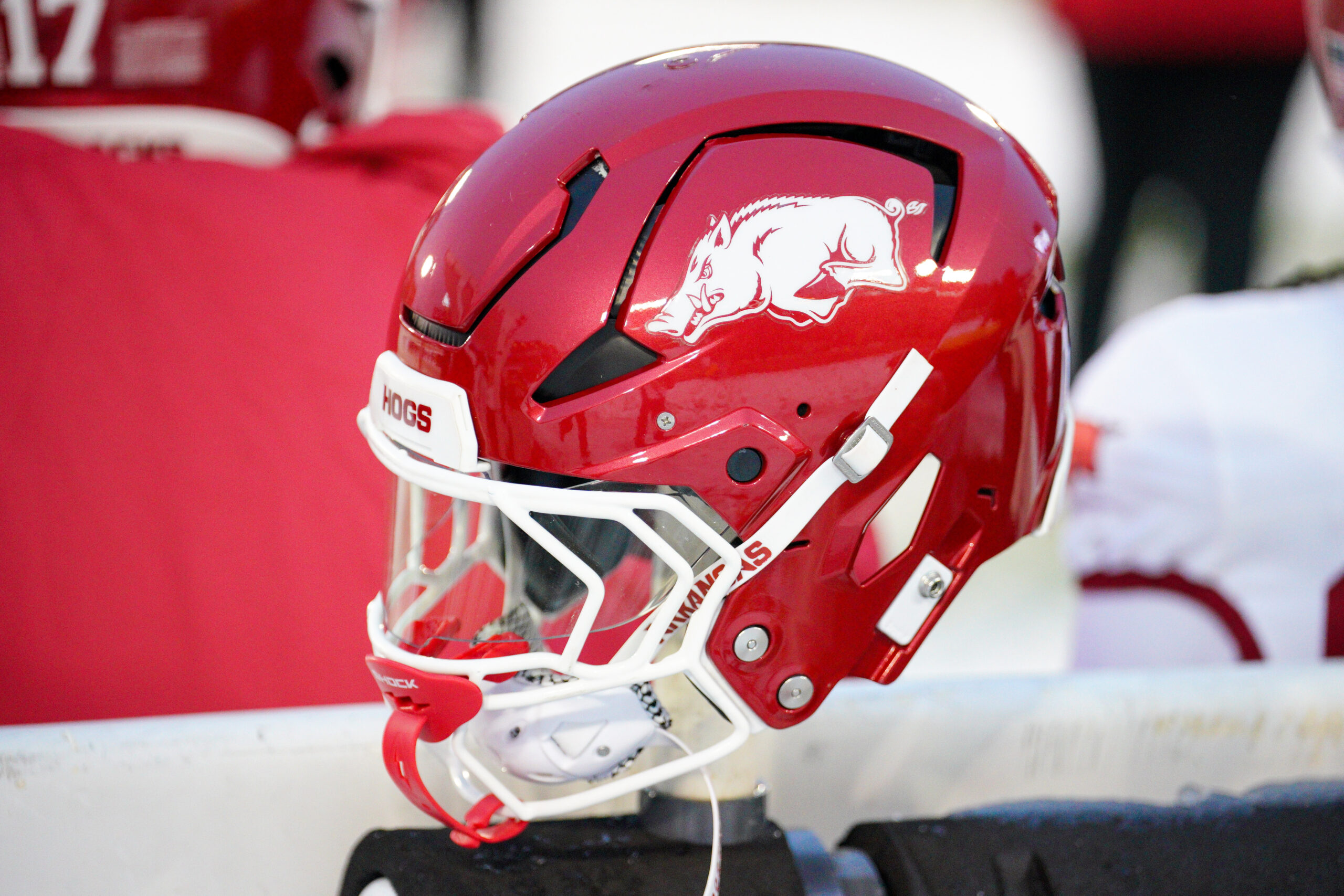After his Florida Gators beat Arkansas 71-63 Saturday at Walton Arena, Coach Todd Golden said:
“I think the strength of Arkansas team, from my perspective, is their ability to penetrate and get downhill and get to the rim.

A group of public libraries and book publishers in Arkansas is pushing back against a growing movement to restrict what children are allowed to read.
Arkansas is one of four states that recently passed laws that make it easier to prosecute librarians over sexually explicit books, a designation conservatives often use to target books with descriptions of gender identity and sexuality. On Friday, a coalition led by the Central Arkansas Library System, based in Little Rock, filed a federal lawsuit it hopes will set a precedent about the constitutionality of such laws.
The Central Arkansas Library System argued in a filing in U.S. District Court for the Western District of Arkansas that Act 372 violates the First Amendment by making it a misdemeanor for libraries to give children access to materials that are “harmful to minors.” The term — which means any depiction of nudity or sexual conduct meant to appeal to a prurient interest that lacks serious artistic, medical or political value and which contemporary community standards would find inappropriate for minors — is too broad, the suit contends. For example, the law would prohibit 17-year-olds from viewing materials deemed too explicit for 7-year-olds.
The complaint also alleges that the law violates residents’ due process rights by allowing local elected officials to overrule librarians’ decisions about book challenges without providing explanations or permitting appeals from those who disagree.
“There’s enormous angst and anxiety on the part of librarians in the state,” said Nate Coulter, the executive director of the Central Arkansas Library System, which has 17 branches in seven cities. “Because not only do they feel like people in the state government don’t respect their integrity, but they’re seen as a hostile party. They’ve been called groomers. They’ve been accused of being pedophiles. They’re basically targeted by a very divisive, angry group of people who are vocal about believing that somehow the library is the problem in our community.”
It’s unclear how prosecutors or judges would handle such criminal cases, but violations of Act 372’s “harmful to minors” provision could result in maximum jail sentences of one year. The law also eliminates protections for librarians and teachers who distribute material “that is claimed to be obscene” as part of their job, a felony punishable by up to six years in prison; the lawsuit isn’t challenging that part of the law.
Dan Sullivan, the Republican state senator who sponsored the measure, defended the possibility that a librarian could go to prison over children’s books.
“We don’t exempt doctors from abuse laws. We don’t exempt pharmacists from drug laws,” Sullivan said. “And I don’t know why we would exempt librarians from these laws about what’s harmful to children.”
Although the law doesn’t go into effect until Aug. 1, the lawsuit says Act 372 is already having an effect in Crawford County, where public libraries recently moved books about disabled people, puberty, religion and LGBTQ characters out of the children’s sections. When residents asked for the books to be moved back, Crawford County’s attorney defended the move and cited Act 372, according to a letter obtained by NBC News.
The suit asks that a federal judge block prosecutors from enforcing Act 372’s provisions regarding book challenges and materials “harmful to minors.” It names the Crawford County government, Crawford County Judge, or CEO, Chris Keith and 28 prosecutors across the state in their official capacities as defendants. Crawford County and Keith did not immediately respond to requests for comment.
Arkansas libraries are entering a nationwide maelstrom over children’s access to materials that include descriptions of sexuality and LGBTQ characters or themes. In the past two years, conflicts over restrictions on books have expanded from school and classroom libraries to public community libraries. As with school boards, library trustees meetings in many cities have turned from sleepy affairs to impassioned political battlegrounds, leading to heated rhetoric and legislation targeting librarians.
This year, 15 states considered bills that would open public librarians up to criminal charges for letting minors check out certain books, according to the EveryLibrary Institute, a librarian advocacy group. The governors of Arkansas, Indiana and Montana signed bills into law, while in Idaho and North Dakota, similar measures passed but were vetoed by Republican governors. Last year, Oklahoma was the first state to pass a law removing librarians’ protection from prosecution.
As the battles unfold locally, librarians have become targets of those who believe children shouldn’t have access to books with frank descriptions of sexuality, discussion of gender transitions or celebration of LGBTQ identity.
In Moon Township, Pennsylvania, local elected officials — who’d objected to children’s books about drag queens — questioned a public library about its Disability Pride Month display, because they thought the use of the word “pride” was a reference to LGBTQ people.
In Post Falls, Idaho, a library board called police to a meeting in February to address a rowdy crowd that kept shouting “shame” and “Satan” at people who defended keeping LGBTQ-themed books available for children.
In Llano, Texas, county officials nearly shut down its library system this year over a dispute about whether to keep books like “Larry the Farting Leprechaun” and “I Need a New Butt!” on the shelf because residents complained the illustrations appealed to pedophiles.
Clare Graham, the director of the Malvern-Hot Spring County Library in central Arkansas, has been watching in disbelief as such arguments roil communities in the state and beyond.

“The messaging is saying, ‘If you are against this, you want kids to see porn,’ and that’s wrong, but that’s the way it’s been framed,” Graham said. “It leaves me scratching my head, because we are a sanctuary for many, and we are a neutral space.”
In Saline County, in central Arkansas, dueling billboards show the divisions over public libraries.
Billboards sponsored by the Saline County Republican Women and the Saline County Republican Committee warn of “X-RATED LIBRARY BOOKS” and direct people to a website that primarily highlights books that include LGBTQ characters. One example is a children’s book published by HBO’s “Last Week Tonight with John Oliver” about a gay bunny named after former Vice President Mike Pence’s pet rabbit, which the website says is inappropriate for children and part of the library’s effort to “draw them away from Christian values.”
In response, the Saline County Library Alliance, a group of residents opposed to book restrictions, put up a billboard urging residents to “FIGHT THE LIES. STAND WITH THE LIBRARY.” Bailey Morgan, who raised money for the billboards, said they fear the campaign against supposed explicit books will lead to funding cuts for the library, as has happened elsewhere in the state.


After his Florida Gators beat Arkansas 71-63 Saturday at Walton Arena, Coach Todd Golden said:
“I think the strength of Arkansas team, from my perspective, is their ability to penetrate and get downhill and get to the rim.

The Arkansas State Police is investigating a Sunday homicide that took place about 9 miles from the state’s southeast corner, the agency announced Monday.
Around 8:15 p.m. Sunday, a Eudora Police Department officer on patrol heard what sounded like gunshots, according to a report.
The officer responded and was flagged down by witnesses who reported that Jamarion Plummer, 25, had been shot at his home in the 1000 block of North Main Street.
Plummer was taken to Chicot Memorial Medical Center, about 15 miles to the north, in a private vehicle. He was later transferred to UAMS Medical Center in Little Rock, where he died from his injuries at approximately 11:30 p.m. Sunday.
The Eudora Police Department requested the assistance of state police. The investigation is ongoing.

Former Arkansas offensive tackle Ty’Kieast Crawford has changed his mind on his destination for this fall and is transferring to West Virginia, his agents told ESPN’s Adam Rittenberg on Monday.
The 6-foot-5, 324-pounder had originally committed to play for UCLA in 2025, but now the mammoth tackle has pivoted and has decided to play for Rich Rodriguez in Morgantown this fall. Crawford started 9 games along the Razorbacks’ offensive line.
Crawford’s collegiate journey has already taken him to multiple schools. He began his career at Charlotte, choosing to play there over the likes of Alabama, Arkansas, Georgia, LSU, Missouri, Ole Miss, Tennessee, Arizona, Baylor, Colorado, Florida State, Houston, Indiana, Oklahoma State, Purdue, SMU, Texas A&M, Texas Tech, USC and, ironically, West Virginia. So Crawford will now have played for 2 of the schools he originally spurned, in Arkansas and West Virginia.
But Crawford didn’t last long at Charlotte, playing just 1 season for the 49ers. He entered the transfer portal and ended up at Arkansas after spurning the Razorbacks in his original recruiting process. Crawford appeared in 33 games for the Razorbacks over the course of 4 seasons, making 9 starts.
He will have 1 more year of eligibility left when he arrives in Morgantown to play for Rodriguez this fall.
Cory Nightingale, a former sportswriter and sports editor at the Miami Herald and Palm Beach Post, is a South Florida-based freelance writer who covers Alabama for SaturdayDownSouth.com.


Who Are the Recipients of the Presidential Medal of Freedom?


Ozempic ‘microdosing’ is the new weight-loss trend: Should you try it?
/cdn.vox-cdn.com/uploads/chorus_asset/file/25822586/STK169_ZUCKERBERG_MAGA_STKS491_CVIRGINIA_A.jpg)
/cdn.vox-cdn.com/uploads/chorus_asset/file/25822586/STK169_ZUCKERBERG_MAGA_STKS491_CVIRGINIA_A.jpg)
Meta is highlighting a splintering global approach to online speech


Metro will offer free rides in L.A. through Sunday due to fires
/cdn.vox-cdn.com/uploads/chorus_asset/file/25821992/videoframe_720397.png)
/cdn.vox-cdn.com/uploads/chorus_asset/file/25821992/videoframe_720397.png)
Las Vegas police release ChatGPT logs from the suspect in the Cybertruck explosion


‘How to Make Millions Before Grandma Dies’ Review: Thai Oscar Entry Is a Disarmingly Sentimental Tear-Jerker


Trump Has Reeled in More Than $200 Million Since Election Day


Movie Review: Millennials try to buy-in or opt-out of the “American Meltdown”